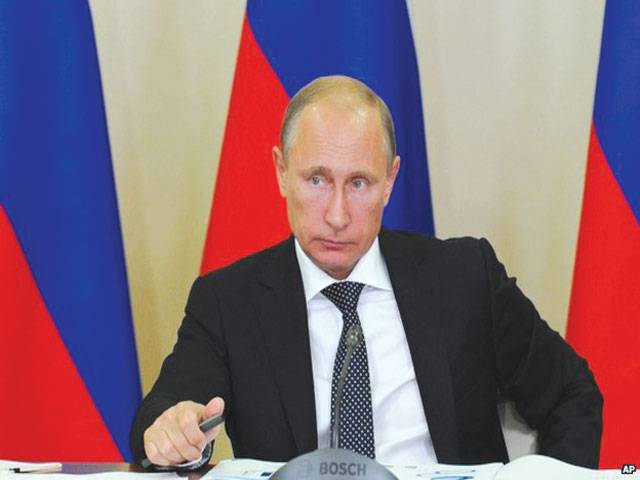Stephen Ennis - The increasingly harsh and reactionary political climate in Putin’s Russia has sparked a wave of emigration among middle-class professionals, including several leading journalists.
Russia has seen this before - from the departure of left-wing revolutionaries in Tsarist times and the writers and artists who fled after the October 1917 revolution to the great brain drain that accompanied the collapse of the Soviet Union at the start of the 1990s. The latest wave stems from the crackdown on the liberal opposition and independent media that followed Vladimir Putin’s re-election as president in March 2012.
More than 186,000 people left Russia in 2013, five times as many as two years earlier, according to state statistics agency figures quoted by business magazine Sekret Firmy,
A recent UN report notes that around 40,000 Russians applied for asylum in 2013, 76% more than in 2012. Among those packing their bags have been former world chess champion and opposition activist Garry Kasparov, top economist Sergei Guriyev and social media whizz kid Pavel Durov.
Another is Leonid Bershidsky, who worked at several of Russia’s leading business publications, including Vedomosti, and was latterly editor of liberal website slon.ru.
Bershidsky recalled in a Facebook post in June how he had come back to Russia from university in America in the 1990s with the hope of creating a “real press”, “the sort that in America publishes the Snowden revelations or in Europe stops ministers from getting away with misusing official credit cards”. Now, though, he has gone to live in Germany. He now writes in English for US business publication Bloomberg and says even reading in Russian or Ukrainian has become an ordeal amid the welter of “propaganda” pouring out of the two countries.
Russia still has a smattering of independent media, including newspaper Novaya Gazeta, niche TV station Dozhd and radio station Ekho Moskvy. But they are dwindling almost by the month as the Kremlin cracks down.
Independent news agency Novy Region was one of a number of media that have come under pressure because of their coverage of the Ukraine crisis. Its founder Alexander Shchetinin has now taken up residence in Kiev and has declared that he is planning to renounce his Russian citizenship and become a citizen of Ukraine.
The spur for this decision was the experience of watching Russian state TV. “The more I watched the more I became convinced that nothing can be remedied here,” he wrote in Ukrainian magazine Novoye Vremya. “It will take generations to cleanse people’s souls of the effects of this radioactive TV.”
State TV has also played its part in creating a hostile atmosphere towards journalists. In August, Gazprom-Media’s NTV aired two films branding a number of leading cultural figures as “friends of the junta” - Russian state TV’s term for the government in Kiev.
Among those targeted were writers and journalists Dmitry Bykov, Viktor Shenderovich and Andrei Malgin.
One of the many Russian journalists who have been physically attacked because of their work is Oleg Kashin, a former columnist with heavyweight broadsheet Kommersant. He was badly beaten up outside his Moscow home in 2010, spending several weeks in hospital as a result.
Mr Kashin now lives in Switzerland, where he moved in 2013 after his wife got a job there. Making the move was made easier by two things - first the internet, which allows him to continue to function as a journalist; and second the dearth of openings for independent journalists these days in Moscow.
“There is really nowhere for me to write, no place where I would even fantasise about working,” he told liberal magazine Afisha.
Emigre journalists like Oleg Kashin and Leonid Bershidsky have come under fire from some colleagues. Writing on Facebook in June, former TV presenter Anton Krasovsky said it was an act of “egotism” because it meant abandoning friends and family. But for some journalists it is the only feasible means to continue their careers.
Galina Timchenko was sacked in March as editor-in-chief of top news website lenta.ru after publishing an interview with a member of Ukrainian ultra-nationalist group Right Sector.
She is now working on a new website called Meduza to be launched later this month from the Latvian capital, Riga, with some of the finance coming from Russia’s most famous current exile, former oil boss Mikhail Khodorkovsky.
A colleague, Ilya Krasilshchik, told the Russian version of Forbes magazine: “It is simply the case at the moment that in Latvia it is possible to create an independent Russian-language media outlet, whereas in Russia it is not.”
They appear upbeat about the prospects of Meduza. But many emigre journalists express a sense of disappointment and disbelief at how Russian society has changed over the past decade and a half. “It is an emigration of disillusionment,” Leonid Bershidsky said.–BBC
Sunday, May 19, 2024
Brain drain in Russia

Sports & Genocide
May 18, 2024
Healing AJK
May 18, 2024
A New World Order
May 18, 2024
Tobacco Toll
May 17, 2024
Rushed Reforms
May 17, 2024
Continuing Narrative of Nakba
May 18, 2024
Teacher Struggles
May 18, 2024
No Filers out of Reach
May 18, 2024
Hoax of Inflation Coming Down
May 17, 2024
Rising Inflation
May 17, 2024
ePaper - Nawaiwaqt
Advertisement
Nawaiwaqt Group | Copyright © 2024





